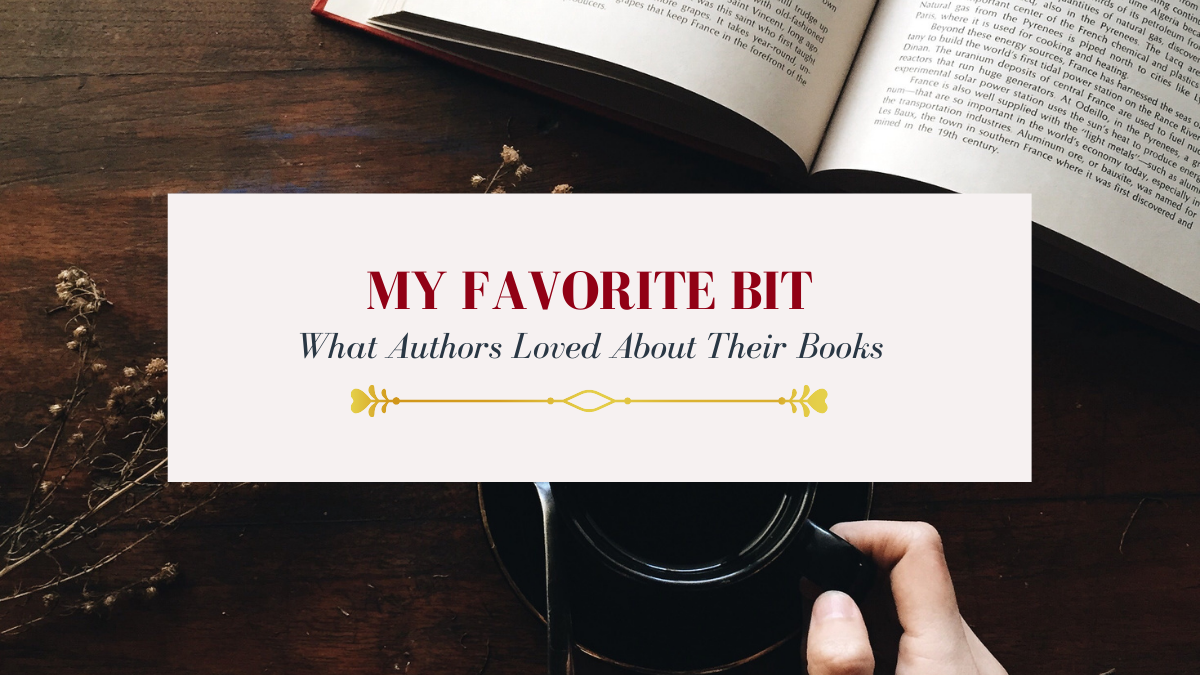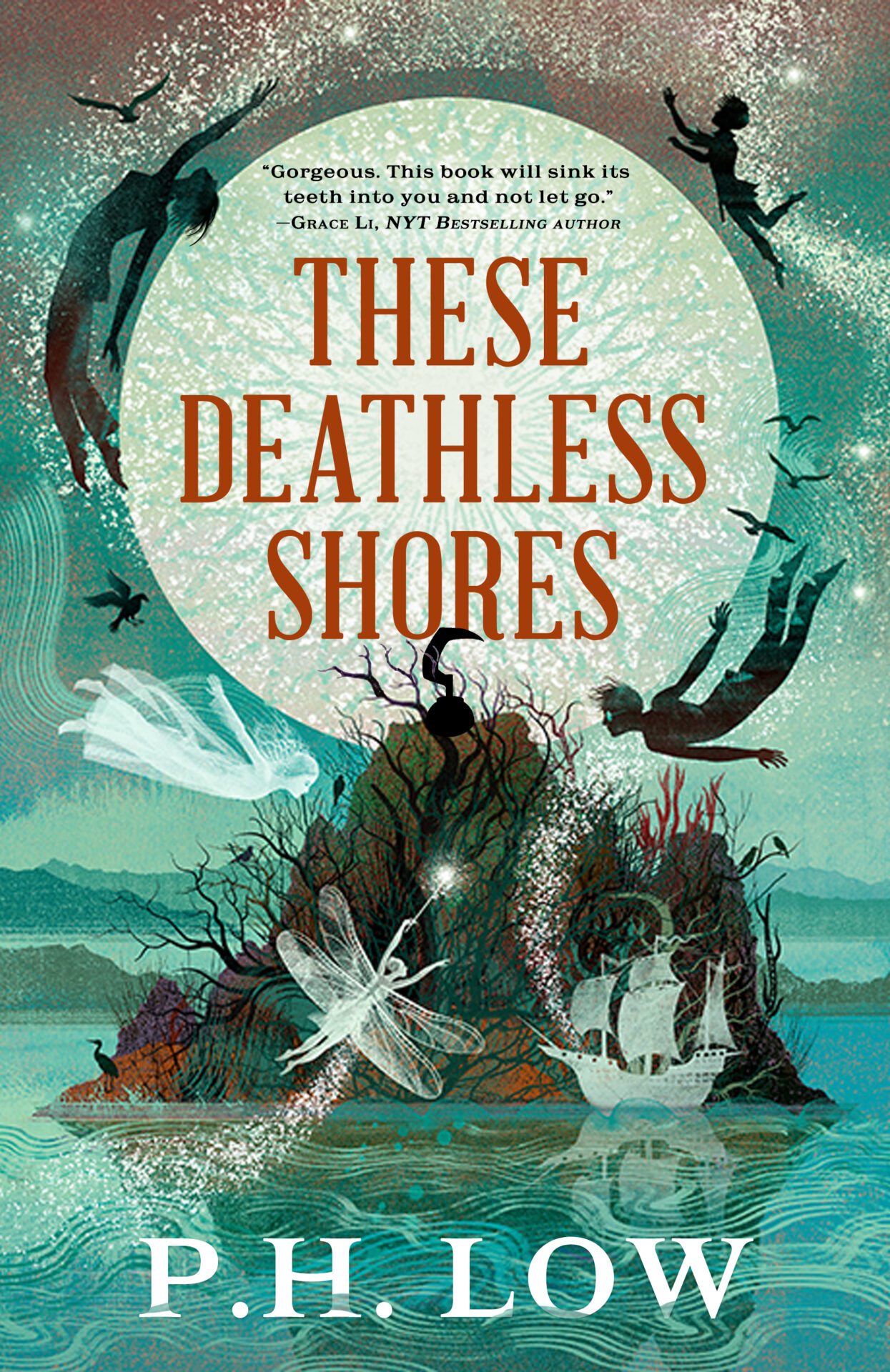
P.H. Low is joining us today to talk about their novel, The Deathless Shores. Here’s the publisher’s description:
Gorgeous and devastating, P. H. Low’s debut fantasy is a richly reimagined tale of Captain Hook’s origin, a story of cruelty, magic, lost innocence, and the indelible power of stories.
Jordan was once a Lost Boy, convinced she would never grow up. Now, she’s twenty-two and exiled to the real world, still suffering withdrawal from the addictive magic Dust of her childhood. With nothing left to lose, Jordan returns to the Island and its stories–of pirates and war and the heartlessness of youth–intent on facing Peter one last time, on her own terms.
If that makes her the villain…so be it.
What’s P.H.’s favorite bit?

One of my favorite parts of These Deathless Shores is (if you’ve read the book, please politely pretend to be surprised) the sparring scene.
Or, well, it’s not really sparring—Baron, still traumatized from the years he spent as a Lost Boy, gets anxious when faced with any sort of combat, while Jordan (also a former Lost Boy, but scarred by the experience in different ways) mostly wants an excuse to tilt his chin up with her sword, which I had a lot of fun writing. But rather than being the opening sally of an enemies-to-lovers arc, this scene comes about two-thirds of the way into the story, at a point where the relationship is falling apart: Jordan—despite initially returning to the Island solely to steal Peter’s fairy, Tink, and sate her own fatal withdrawal from the Island’s magic Dust—has instead embraced her desire to fight alongside the pirates; to relive, in a twisted way, her childhood glory days on Peter’s crew. Baron, on the other hand, shies away from the bloodlust he sees Jordan giving into, and finds himself both increasingly estranged from and terrified of losing her. This latest round of swordplay is one of their last attempts to get through to each other—as Baron reflects: “They both spoke a handful of languages, but there was only one in which she would truly accept an apology” (286).
I’m also quite fond of the bit that comes after. The crossing of swords is, per hallowed tradition, followed by (ahem) the collision of the things they often symbolize—as well as a bit of talk about what might come after the Island. It’s a rare moment of tenderness, in a world that only seems to promise death. Lying side by side, Jordan and Baron speak of using Dust-glamour in the city, and Baron trying to finish college—and in doing so, find a truth to each other that they have not, until this point, dared reveal:
“I thought you were—” He motioned vaguely at the ocean, at what lay beyond. “Not in favor of—of office jobs.”
“Everyone has to find some way to keep going, right?” Her thumb traced his brow, the line of his cheek. “Some reason to stay.”
And then his throat closed and his eyes were spilling over and her arms wrapped around him, holding him the way he had never dared ask because he’d never believed it was something she would give. She was holding him and he was sobbing into her shoulder, the storm he had tried so hard to seal inside his skin howling out undignified, an obliteration, and still—and still—she did not let go. (288)
There are moments of self-realization throughout the book, but to me, this feels like the one (besides the ending) where Jordan and Baron come closest to themselves—even while carrying the weight of all the ways they’ve hurt each other, and the hurts they have yet to inflict. Baron is no longer pretending he can keep himself together; Jordan shows herself the kind of person who might hold him—even if he wants to take the grown-up path, one that leads away from the Island and their shared childhood—when before she would have stepped back, let go. And in their embrace lies a seed of a promise, the beginning of hope: that there is a point where they might still converge, despite their differences; that there will be an after at all; that the Island, with its snarling wolves and battle-hungry Boys and blood soaked into cool dark soil, is worth living through—even a second time.
LINKS:
BIO:
P. H. Low is a Rhysling- and Locus-nominated Malaysian American writer and poet whose debut novel, These Deathless Shores, is out now from Orbit Books (US) and Angry Robot (UK). Their shorter work is published in Strange Horizons, Reactor, Fantasy Magazine, and Diabolical Plots, among others; they have a bad habit of moving cities every few years, but can be found online at ph-low.com or on Twitter/X and Instagram at @_lowpH.
